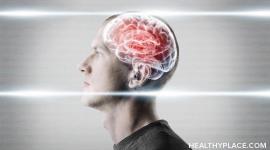Cocaine Use: Signs, Symptoms of Cocaine Use and Addiction

Cocaine is a highly addictive stimulant drug and cocaine use can cause significant psychological and physiological effects. Cocaine use can lead to cocaine dependence and cocaine addiction. Cocaine use is often combined with use of other drugs like marijuana and alcohol, which can make cocaine use even more dangerous and make cocaine symptoms of use more difficult to see.
Cocaine signs and symptoms are both psychological and physical. Signs of cocaine use, though, vary depending on how much cocaine is used and the ingestion method of cocaine use.
Cocaine Use: Signs of Cocaine Use and Cocaine Addiction
Cocaine use and cocaine addiction signs are those that can be seen by others and may or may not be as a direct result of the cocaine itself.
Use or abuse of cocaine signs include:1
- Neglecting responsibilities due to cocaine use
- Continuing to use cocaine, even in dangerous circumstances
- Legal trouble resulting from cocaine use
- Relationship problems resulting from cocaine use
- Life revolving around cocaine use
- No longer engaging in previously enjoyed behavior
- Use of over-the-counter nasal decongestants
- Track marks
- Weight loss
The severity and signs of cocaine use are often denied by the cocaine user; however, that does not mean they don't have a problem with cocaine use or cocaine abuse.
Cocaine Use: More Symptoms of Cocaine Use and Cocaine Addiction
While some of the psychological and physiological symptoms of cocaine can be invisible without medical testing, many cocaine symptoms are noticeable, particularly to the cocaine user themselves.
The more prominent symptoms of cocaine use and cocaine addiction include:2
- During cocaine use: euphoria, increased energy and sense of power, decreased sensation of pain, talkativeness, laughing, dilated pupils, nausea, headache, vertigo, emotional instability, teeth grinding, cold sweats, twitching, seizures, and psychosis
- A need to use more of the drug for the same effect (tolerance)
- Nasal and sinus diseases
- Recurrent nosebleeds and stuffiness
- Facial pain
- Chronic bronchitis, coughing, coughing up black phlegm
- Shortness of breath, chest pain
- IV cocaine user faces additional risks, such as HIV or hepatitis B or C
Symptoms of cocaine use, particularly of chronic cocaine use, are found in the brain and all other organs in the body through the use of medical tests. See long term effects of cocaine.
Cocaine Use: Symptoms of Cocaine Use and Cocaine Addiction in Pregnancy
Cocaine use during pregnancy directly endangers the unborn child and the mother. Symptoms of cocaine use during pregnancy include:
- Increased rate of miscarriage
- Increased risk of stillbirth
- Newborn birth defects, malformation
- Low birth rates
- Child behavior abnormalities
Cocaine Use: Cocaine and Alcohol
When cocaine is mixed with alcohol it becomes even more dangerous. While alcohol with cocaine use may produce a better "high," it also creates a toxic, possibly fatal substance called cocaethylene. This substance further increases heart rate and blood pressure; possibly to lethal levels.
Read information on alcohol addiction.
APA Reference
Tracy, N.
(2021, December 15). Cocaine Use: Signs, Symptoms of Cocaine Use and Addiction, HealthyPlace. Retrieved
on 2025, April 25 from https://www.healthyplace.com/addictions/cocaine-addiction/cocaine-use-signs-symptoms-of-cocaine-use-and-addiction



